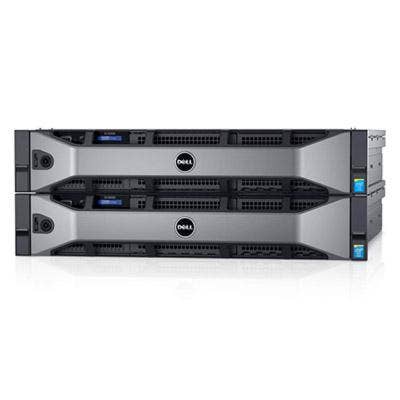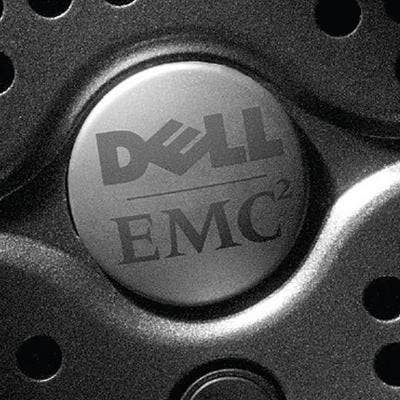Dell EMC Exec On The Growing Opportunity For The Channel In 'Extreme Scale' Market

How The Channel Fits In With Extreme Scale Infrastructure Unit
Dell EMC's Extreme Scale Infrastructure unit got its start as part of the Data Center Group selling servers to Amazon, Facebook, Google and other giant web-scale customers.
Now, broadening demand means the unit is taking that business to so-called sub-web-scale customers, those buying multiple racks of data center technology and dictating exactly what they need for each specific environment.
Jyeh Gan is director of Dell EMC's Extreme Scale Infrastructure (ESI) unit, and he says the move toward cloud and software-defined technology could result in significant growth for the business and its channel partners. But, he adds, the customer journey is long and complex and Dell EMC intends to lean heavily on channel partners to help those customers along the way.
"Until the point in the future when software is truly abstracted from hardware, we will always be able to do things in hardware that optimize for data center environments and optimize for people's software. That's what ESI is really focused on," Gan told CRN.
Following is an edited excerpt of CRN's conversation with Gan.

Where's the play for channel partners here?
I think there's a lot of play here. We work with either our direct sales teams or our channel partners, whichever is going to serve the customer best. Dell EMC can't deliver what customers want unless you really understand the customer's environment and their needs. We have a spectrum of things that channel partners can do. At ESI, roughly 40 percent of our business is through channel partners right now. It can be as easy as, 'Hey, we're providing a solution, we need you to do the rack integration work,' to 'Hey, you're the primary conduit to this customer and we need your help understanding what we need to do on the IT or software side,' to 'Hey, we can provide the hardware, but we need you to build the solution the customer requires.'

And it varies by customer and by partner?
I've spoken with a lot of channel partners, and some want to do just the rack integrations, and that's a great thing about Dell EMC and ESI -- we can do any part of it and we can go with whoever knows the customer best.

Big channel partners?
Yes and no. We've worked with several small channel partners too. When you think about it, there's the enterprise typical IT, and then there are hyper-scale guys who say, 'Just get us some hardware, we told you exactly what it needs to look like and we'll take care of the rest.' There's a big swath of customers in the middle who are making this journey and they need help from a variety of people. So while we might focus on the big, there's a lot of people in the middle who aren't necessarily small that we want to work with, so we work with smaller channel partners to do that.

The demands of the hyper-scale, or sub-hyper-scale, market must favor certain partners, though.
We're not trying to remove any partnerships or drive a wedge there. If they were doing full-up solution deployment, integration, etc., depending on the size of that channel partner, I could see a move to larger channel partners because the end customer is suddenly wanting to deploy thousands of racks, or even hundreds of racks. I can see that's where the difficulty is for a majority of channel partners. I think there may be 10 or 20 in the world that can handle it on a global basis because most of these customers want to grow globally. That will mean having IT in data centers throughout the world, and I think that's the biggest shift, honestly. It won't be the capabilities of putting together solutions or even the hardware or the rack integration side. It'll be the global supply chain.

Is the market where ESI lives pulling business away from the traditional enterprise IT market?
I'm not sure that's the way I would classify it. I think the market is pulling in a certain direction, and that's the direction of the cloud and software-defined and growth in the service provider space. That does take away from the enterprise. I don't think it's ESI taking that away, I think we're just responding to the market. We've done a good job of reading where the market is going, and that's why we started the ESI business. We understood that we needed to be able to account for the fact that enterprise customers are shifting, whether directly to the public cloud or building clouds themselves. We need to be able to answer that.
How big a leap is it for solution providers/channel partners to get into that market as it evolves?
They're already there today. Not all the way, and not everybody's there, but they're involved in different areas. I've seen it where the channel partner was already working with a customer from an enterprise standpoint and that customer wants to shift. If the relationship is there, then that shift occurs together and we're just an enabler of that shift.

You mentioned that 40 percent of your business goes through the channel. Are you comfortable with that? Is that a good balance?
We don't really pay attention to it. We're sort of agnostic. Business for us can come from anywhere, we're more of an enabler within Dell EMC. We're comfortable with that number. It could be higher, it could be lower as long as whoever we work with understands the customer's environment and needs. That's who we're really focused on. That said, to reach more customers we are definitely talking to more channel providers because there's a finite limit on the amount of direct sales people Dell EMC has. We want to reach more customers and we think there's more need for what we do, and as a company growth in the channel is a good thing. I personally talk to a lot of channel partners all the time, to talk about the different models for relationships, partnerships, to find the right type of customer, also.

What do ESI's customers want?
When you get to that kind of scale, you start wanting to have more things done exactly the way you need them for your environment. Until the point in the future when software is truly abstracted from hardware, we will always be able to do things in hardware that optimize for data center environments and optimize for people's software. That's what ESI is really focused on. We're focused on the service providers that are now mostly cloud or 'big web' logos, primarily. Then you get the little bit here and there that are in the HPC space or financials, oil and gas, that are starting to do it in various parts of their form factor -- like oil and gas is primarily on the research side. They want these tweaks and this tailoring, and they need it because it optimizes their environment.

How is Dell EMC positioned to capitalize on this market?
Now that you're getting more and more expansion globally, you talk about how you service all your customers with the lowest latency, where they care about latency, so there's a whole thing around executing, which is going to be a big deal as we see the carriers and telcos get into providing those services. They have a lot of things on the edge and they have a lot of data about consumers like us, and they need more computing on the edge so they don't have to send all that data back to central offices and central data centers. There's going to be more for different hardware beyond the normal 1U, 2U server, even beyond the rack in terms of the buildings these things are housed in, what kind of environment they're in. Dell EMC is better able to respond to these needs because we can provide the hardware as well as the software to meet their needs.